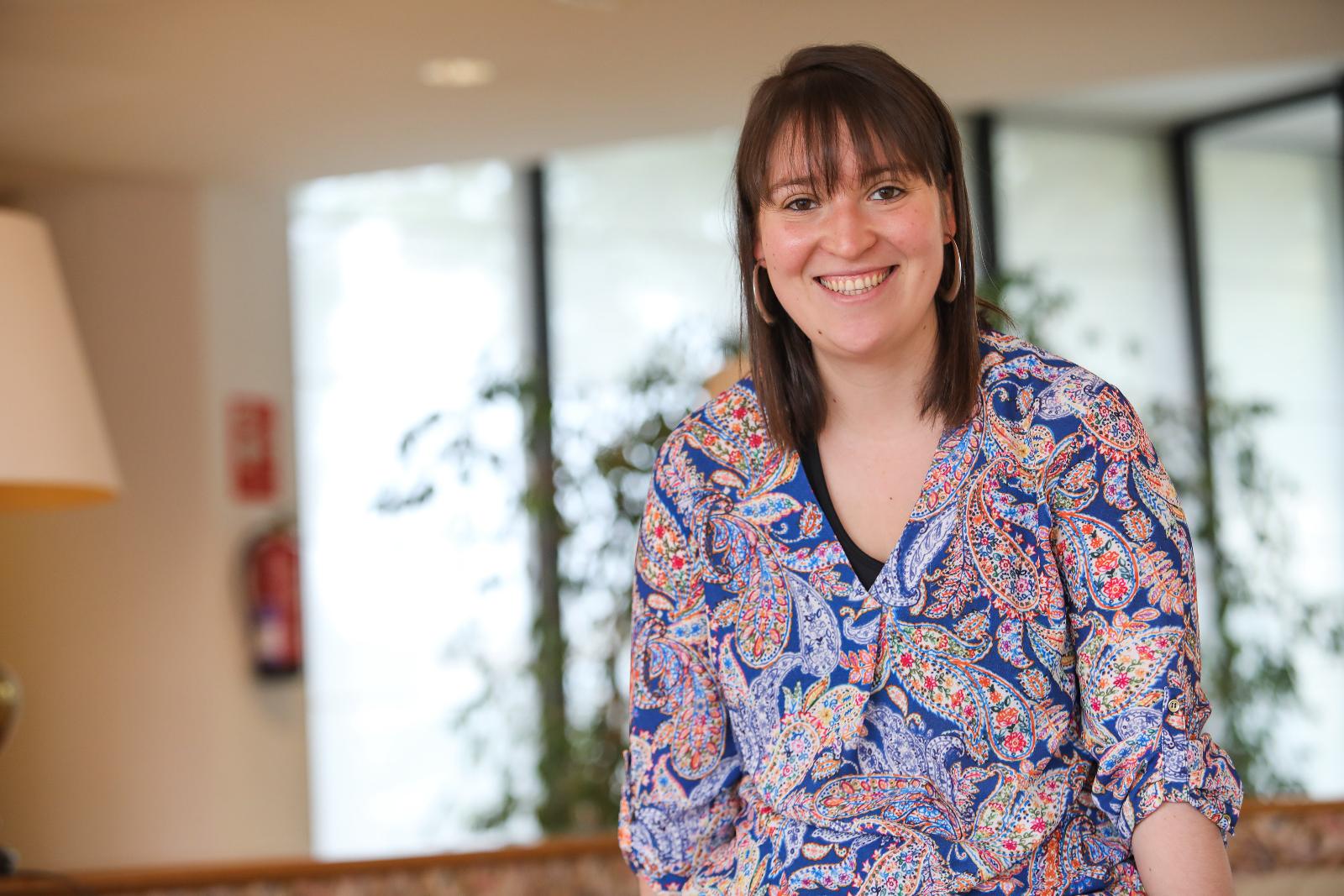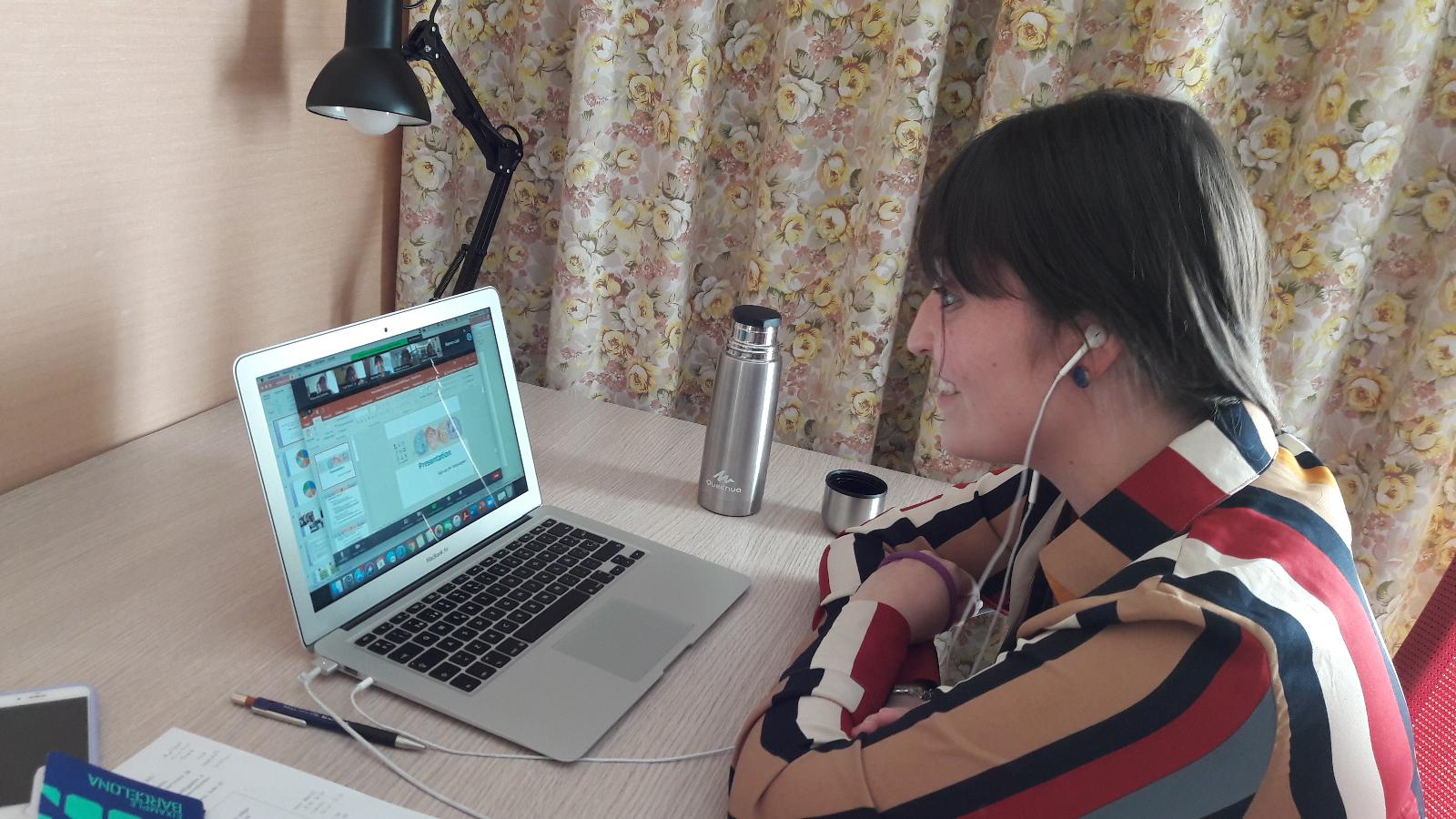Collective residencies / LINGUISTIC RIGHTS / Olot
MACARENA DEHNHARDT AMENGUAL
From Friday, 6 November 2020 to Friday, 13 November 2020

Bio
Macarena Dehnhardt is a Chilean Ph.D. student in the program of Translation and Intercultural Studies, taught by the Universitat Autònoma de Barcelona (UAB). In Chile, she obtained a bachelor’s degree in Hispanic Literature and Linguistic by the Universidad de Chile. Afterward, she fulfilled a master’s degree in the UAB. During the master, she began her research in the communication between the Chilean public services and the Haitians immigrants that arrived in Chile. For this purpose, she decided to work with the areas of Public Service Interpreting and Translation Policies. At present, Dehnhardt is developing an in-depth research about this topic in her Ph.D. thesis, funded by a scholarship provided by the Chilean State. The aim is to analyze the Translation Policies that the Chilean public institutions have taken to overcome language barriers with Haitians and how these policies are embodied in different initiatives in the healthcare, educational and justice domains.
Project
During my stay at Faber, I will explore the following research question: How are the linguistic rights of indigenous people and immigrants in Chile being protected? Bearing in mind this question, I will create an archive that includes institutional documents, particular initiatives, and legal texts related to the protection of linguistic rights, specifically the right to use your language in public space. The idea is that this archive could be open to the public and updated periodically. For this purpose, we will work with our areas of study: Public Service Interpreting and Translation Policies.
Face to face and virtual spaces to reflect on linguistic rights
Meeting new people dedicated to linguistics is always an enriching experience, especially if we consider there is not enough attention paid to this area. Moreover, when we gather around a topic that connects with people's reality, the experience is even more enjoyable. For this matter, the Faberllull Residency has been an open space for sharing ideas, readings, research, and points of view about linguistic diversity globally and how we can protect and promote it from our contexts.
Nevertheless, the residency was impacted by the global sanitary situation because most of the participants could not attend in person to Olot. Despite this, what seems to be a setback to encounter each other was, actually, an opportunity to create a virtual space to meet and make presentations about ourselves every day. Hence, we have shared and commented deeply on our projects through each resident's particular perspective, which indeed allows us to reflect and think about our investigative, artistic, and social work.
Likewise, it was an incredible moment to whom were in person in Olot (Maite Puigdevall, Mariona Miret, and me), considering that we could deepen in topics related to linguistic rights, even in a practical way. In particular, each of us exercised the right to speak their first language (Catalan or Spanish), based on mutual understanding and effective communication. Furthermore, we had the chance to talk about different themes regarding linguistic rights: new speakers, minoritized languages as Occitan, the importance of using research-action methodologies in Linguistics, the importance of activism considering linguistic diversity, among others.
Finally, I would like to highlight the presence of different organizations that shared their works linked to linguistic rights. The participation of Linguapax, the Chair of Linguistic Rights of the University of Valencia, and Chambra d’Òc were essential to be aware of specific actions performed in different communities.
In conclusion, I think that Faberllull has been a critical space to reflect, talk, and share how we can approach linguistic rights, considering the research area, the arts, and its relation to society.

